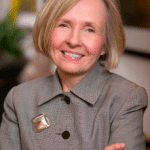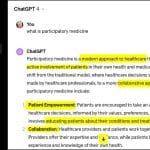Cross-posted from my own blog.
During 2 weeks in December 2008, over 9,000 Americans in all 50 states and the District of Columbia registered to host a health care community group to discuss healthcare reform. Thousands more participated in these gatherings. They all came together for a single, common purpose: to discuss reforming the health care system. This extensive use of local social networks to promote the direct engagement of the public in policy development by the Federal government was unprecedented. It produced 3,276 summaries of the groups main concerns and 30,603 individual participant surveys, submitted on the change.gov website. All suggestions were subsequently read and analyzed, line-by-line by a team of experts. They produced a powerful analysis of the needs & solutions for in-depth healthcare reform. This unique combination of crowdsourced content and expert analysis is truly unique and a sign of things to come. Just read this paragraph from the executive summary:
The Health Care Community Discussions are a first step in this Administration’s commitment to an open and inclusive style of governance that allows all Americans to have a voice in our country’s health reform efforts. This Administration recognizes that true reform comes from the grassroots up and promises that when Americans speak, the Administration will listen. These Health Care Community Discussions reflect the President’s commitment to enlist the public in achieving a top priority: creating a health system that is affordable, accessible, and high-quality for all Americans.
I highly recommend the report. It provides a clear picture that Americans are aware of the problem’s severity and probably able to produce many of the solutions, better than any internal committee from health professionals who can no longer see outside of the existing system. Considering that not a day goes by without the President mentioning the urgent need to reform the healthcare system, the document produced may be looked at as an informal roadmap of the changes we can expect.
One of the most striking results from the analysis of the public responses was the lack of differences in the concerns and solutions identified by participants from across the Nation. The discussions focused on concerns about a “broken” health system, particularly with regard to:
- accessibility: to health insurance and services,
- being “uninsurable”,
- affordability: rising premiums and drug costs,
- adequacy: the system not being “for them”,
- medical mistakes
The top concerns were
- cost (55%) divided equally between cost of healthcare and overall cost of the system,
- lack of emphasis on prevention (20%),
- pre-existing conditions limiting insurance access (13%), and
- concerns about the quality of care (12%) divided between concern with overall quality of system (47%), overuse of service (36%) and medical errors (20%).
In the group reports section about system solutions, participants expressed support for
- a system that is fair (36%),
- patient centered and choice-oriented (19%),
- simple and efficient (17%), and
- comprehensive (15%).
The discussions offered a wide range of specific suggestions for fixing the system, including
- making health insurance more accessible through a public plan,
- creating scorecards on quality and cost,
- improving the nutritional content of school lunches,
- implementing electronic medical records, and
- creating an AmeriCorps for health workers.
Because of my interest in promoting the values of participatory medicine I particularly liked 2 comments:
We want a system that encourages engagement between people and their primary care practices and other health providers; that is patient centered, which means meeting people where they are, as they are, and giving them services that actually improve their health.
There was also general consensus that mental health cannot be separated from physical health and that some level of mental health care services should be available to all citizens.
ACOR, where very active engagement of the patient is considered the norm, had an intense discussion during the 2 weeks. Instead of organizing a local meeting, we created a new online community dedicated to conversations about healthcare reform, from the viewpoint of cancer patients & caregivers. In 2 days we had 200 new subscribers and over 2 weeks many interesting arguments. We are planning to soon put online the results of our own internal survey. Not surprisingly, many of the participants in our conversations had much to say about a single payer system, just like the respondents to the government survey. Stay tuned.






Recent Comments